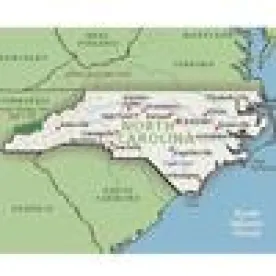Executing on civil judgments in North Carolina became more difficult a few years ago when the Administrative Office of the Courts advised all district and superior court judges, as well as all clerks of court, that ex parte orders in aid of execution (orders made without notice to the opposing party) should no longer be issued.
Previously, after obtaining a money judgment and having a Writ of Execution issued, the judgment creditor could file a Motion for Order in Aid of Execution without notice to the judgment debtor, along with a proposed order to be issued by the clerk of superior court. Once issued, the Order in Aid of Execution allowed banking institutions to freeze non-exempt monies in the judgment debtor’s account(s) and turn the funds over to the judgment creditor in full or partial satisfaction of the outstanding judgment. This was done pursuant to the court’s authority found in North Carolina General Statute § 1-359, which provides that upon issuance of an execution against property, all debtors of the judgment debtor (e.g., the debtor’s bank) may pay the sheriff the amount of their debt to the debtor (e.g., funds on deposit in the debtor’s bank account).
Orders in Aid of Execution were issued without notice to the judgment debtor for two reasons; first, as the North Carolina Supreme Court held in 1906, the judgment debtor already received legal notice of the lawsuit, and the standard notice requirements do not apply post-judgment, and second, as a practical matter, if a judgment debtor has advance notice that the sheriff may seek to seize funds on deposit in their bank account, the debtor is likely to withdraw the funds before the sheriff has time to reach the bank.
While the underlying North Carolina statutes and case law regarding orders in aid of execution and the relevant requirements of legal notice have not changed, the practical procedure for obtaining such orders has changed. Judgment creditors may still seek and receive an order in aid of execution, but must give prior notice to the judgment debtor and an opportunity for a hearing. Note: Some counties and judges will allow an ex parte order to freeze the debtor’s accounts first but require notice and a hearing in order to turn the funds over to the judgment creditor. This new process, while not uniform throughout North Carolina counties, is intended to protect the due process rights of judgment debtors, but does make it more difficult for judgment creditors to realize benefits from obtaining orders in aid of execution and creditors are advised to discuss their pre- and post-judgment collection options with legal counsel and do a thorough cost-benefit analysis before deciding how to proceed.



 />i
/>i

